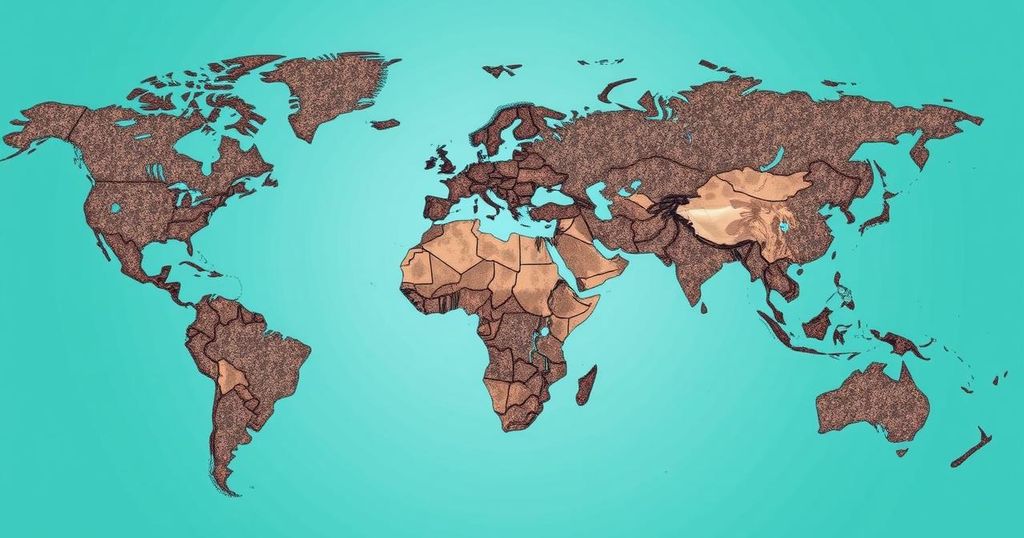The world faced numerous health challenges in 2024, including climate change effects, rising infectious diseases, the impact of technology on healthcare, gender disparities, and antimicrobial resistance. Reports from international discussions emphasized urgent collective efforts required to combat these pervasive issues and promote global health equity.
In 2024, global health challenges garnered significant attention, shaping discussions at key international forums such as the World Economic Forum. Public health issues ranged from the concerning impacts of climate change on health outcomes to infectious disease outbreaks, the role of technology in healthcare, and gender disparities in health equity. This year also witnessed a heightened awareness regarding antimicrobial resistance, underscoring the need for collective action in tackling major global health threats.
The report titled “Quantifying the Impact of Climate Change on Human Health” co-authored with Oliver Wyman emphasized the severe consequences of climate change, projecting an alarming future unless proactive measures are taken. As detailed in the report, failure to address climate issues could lead to an extra 14.5 million deaths and cost healthcare systems an additional $1.1 trillion by 2050 due to increased health inequities and extreme weather events. The health sector’s response to climate change became a critical discussion point at the G20 meetings and COP29 events.
Moreover, infectious diseases posed significant threats with rising cases of measles, mpox, and dengue fever. Measles saw a 20% increase in cases, fueled by widespread vaccine misinformation, while mpox was declared a public health emergency due to newly identified strains. Dengue cases reached historical highs as they nearly doubled since the previous year.
Technological innovations, namely generative artificial intelligence (AI), also played a pivotal role this year, with implementations improving patient outcomes, although challenges in lower-income regions persist. Reports highlighted essential steps to enhance the value-based healthcare model while addressing disparities in access to these technological advancements.
Furthermore, the gender health gap was a fundamental area of concern. A study conducted with the McKinsey Health Institute discovered that women, living longer than men, still experience 25% more years in poor health. This inefficacy places a strain not only on healthcare systems but on economic productivity, advocating for women’s voices to be central in health discourse.
The connection between workplace environments and health was another critical focus. Evidence indicated a direct correlation between employee mental health and corporate performance, triggering discussions on enhancing workplace wellbeing. Additionally, antimicrobial resistance remained a focal threat, with new pledges aiming to reduce AMR-related deaths by 10% by 2030, as discussed in the United Nations’ AMR High-Level Meeting.
The year 2024 was marked by significant global health challenges, which were prominently discussed at international platforms such as the World Economic Forum. Key areas of concern included the dire implications of climate change on public health, the resurgence of infectious diseases, advancements in healthcare technology, gender disparities, and the threat posed by antimicrobial resistance. Insights gained from various reports emphasized the urgent need for global collaboration to address these pressing health issues.
In summary, the health narratives of 2024 highlighted the intricate interplay between climate change, infectious diseases, technological advancements, gender disparities, and antimicrobial resistance. Proactive measures, collaborative efforts, and innovative solutions are essential in addressing these multifaceted challenges. As global health leaders respond to these critical issues, it becomes increasingly important to engage diverse voices in the conversation to ensure equitable health outcomes for all.
Original Source: www.weforum.org







